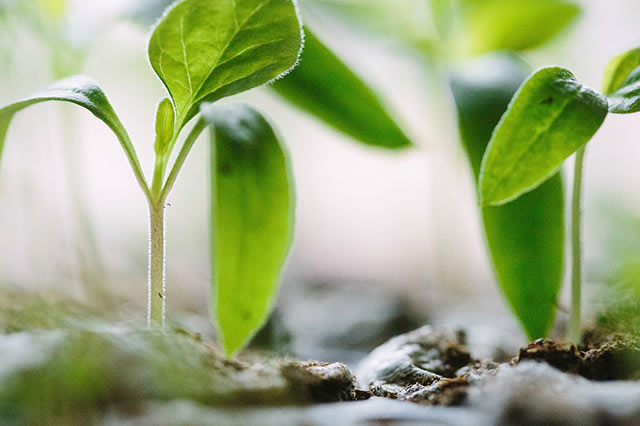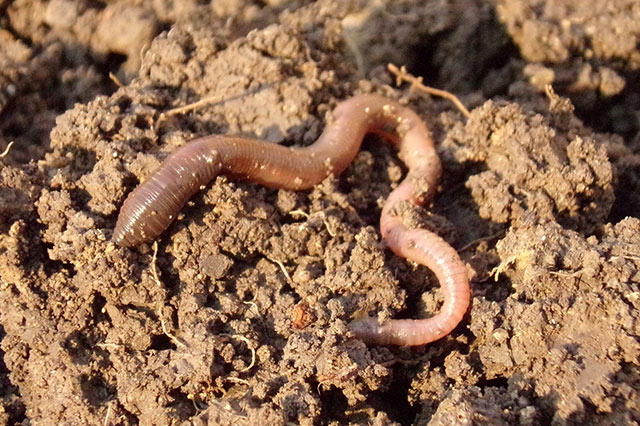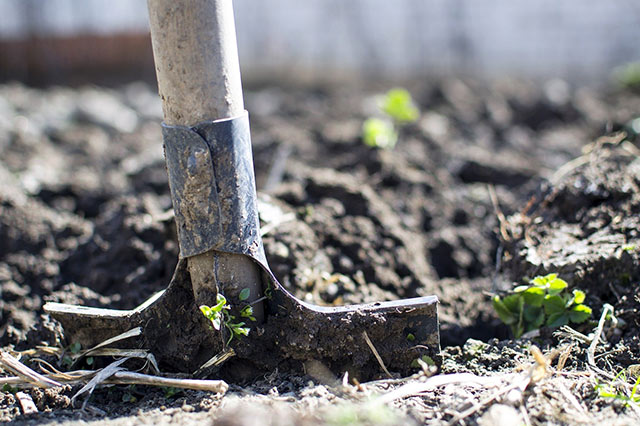Lacking or nutrient depleted soil is sure to underperform and leave your crops struggling to produce during growing season. By knowing how to make organic soil, you can produce a vegetable garden with amazing results and without using any undesirable substances or harmful chemicals.

gardeninginfo-online.com gathered information and essential tips about what it takes to make organic soil or enrich your existing soil.
How To Make Organic Soil
For you to make your own organic soil, you are going to need a compost pile, a base material pile, and a garden space or structure. The following will help you turn regular earth into fertile, organic soil.
Where To Begin – Organic soil begins with a sand, clay, silt, or loam base. When making organic soil, source your base from the gardening section of a home improvement store, a rock quarry, a local construction site, or your yard (if you know there have been no chemical pesticides applied to it). Store the base material in a protected area until you are ready to use it.
Note: If your intent is to improve your existing soil, that soil is your base.
Soil Organic Matter (SOM) – SOM helps provide structure to smaller particles of sand, loam, silt, or clay. SOM helps prevent soil compaction and naturally leads to increased root growth. As soil structure increases, the soil is capable of absorbing water faster and better retaining it. The soil also becomes resistant to erosion by wind and rain. Composting is an excellent source of organic matter.
Compost Pile – Your compost pile should be formed with a variety of decomposing organic material. In fact, the more range you have, the better your compost will be. Consider the following sources:
• Plant and grass clippings contribute sugars to your compost while decomposing.
• Material such as leaves, hay, straw, bark, and wood chips help conserve water and reduce weed growth when used as mulch. When added to your compost pile, this material will break down to organic matter, adding nutrients to your compost.
• Organic refuse from your kitchen. Such as vegetable and fruit scraps or any material that can decompose and does not contain chemical additives.
• Coffee grounds, eggshells, and shredded newspaper or cardboard also make excellent additions to your compost pile.
• Livestock manure is inherently rich in nutrients and comes partially decomposed. You can use this manure to boost your existing compost or create its own compost pile. Either way, this manure should always be composted before reaching your garden.
Never use cat, dog, or human waste in your compost. There is a significant risk of these materials transmitting disease.
Tip: When you can no longer identify the material you added to your compost pile, it has sufficiently decomposed and is ready to be used.
Soil Organism Community – Fertile soil is an ecosystem packed with beneficial soil microbes. Bacteria, fungi, and protozoa are significant participants in soil microbial processes. Other vital soil organisms include arthropods, earthworms, and some nematodes.

Tip: To increase soil organisms, keep adding compost, mulch, and plant cuttings to your compost pile and to your soil. Just by growing plants or cover crops, you are providing organic matter for microbes to consume.
Building Your Soil – If you are container gardening, follow these steps to develop a fertile, nutrient-rich soil:
1. Begin by spreading a one-inch layer of compost in the bottom of your container
2. Add a one-inch layer of your base material (sand, clay silt, or loam)
3. Roughly mix the two layers together
4. Repeat this process until your soil rises just above the container rim (the soil will settle)
5. Water the soil deeply to promote the creation of a structured soil
6. Cover the container with organic mulch for the soil to retain its moisture
7. Allow your soil to mature for at least two weeks before planting
8. Adding earthworms will significantly help your soil during this process
If your garden is ground-based, follow these steps:
1. Outline the shape of your garden (use spikes at the four corners and attach a string to show your garden’s perimeter
2. Dig out at least 6 inches of earth from the garden location
3. Water the area you have dug out and let it soak into the ground
4. Spread a one-inch layer of compost in the bottom of the dug out area
5. Add a one-inch layer of your base material (sand, clay silt, or loam)
6. Roughly mix the two layers together
7. Repeat this process until your garden area rises 2 to 4 inches above ground level (the soil will settle)
8. Water the soil deeply to promote the creation of a structured soil
9. Cover the garden space with organic mulch for the soil to retain its moisture
10. Allow your soil to mature for at least two weeks before planting
11. Adding earthworms will significantly help your soil during this process

Tip: To keep your soil organic and its organism community alive, you will need to avoid using chemical/commercial pesticides. You can use homemade pesticides that are just as effective and easy to make. Read more about making homemade pesticides at gardeninginfo-online.com/homemade-non-toxic-pesticides-your-garden/
Plant Cover Crops or “Green Manure” – When you are not planting to harvest, plant cover crops like:
• Cereal rye (for colder weather)
• Winter wheat (for colder weather)
• White Dutch dwarf clover
• Red medium clover
• Mammoth clover
• Yellow clover
• Mustard
• Alfalfa
These cover crops will:
• Add diversity to your soil
• Help it retain moisture
• Protect it from erosion
• Shield it from intense sunlight
More importantly, when it dies, it can be tilled into the soil to decompose and add further nutrients to your amazing organic soil.
You can read more about organic gardening by visiting gardeninginfo-online.com/why_organic_gardening/
Making Organic Garden Soil
In this article, you discovered information and tips on how to make organic fertile soil for your raised container garden or garden bed.
By adding organic material to your soil properly, you can create a thriving ecosystem within your soil that promotes soil structure and healthy plant growth.
By ignoring the organic needs of your soil, it will eventually fail at providing water and nutrients to whatever you attempt to grow.
Sources:
extension.umn.edu/how-manage-soil-and-nutrients-home-gardens/living-soil-healthy-garden
agrilifeextension.tamu.edu/library/gardening/soil-preparation/
gardeningsolutions.ifas.ufl.edu/care/fertilizer/organic-matter.html
canr.msu.edu/hrt/uploads/535/78622/Organic-Matters-figure-6pgs.pdf
The post How To Make Organic Soil for Your Vegetable Garden appeared first on http://gardeninginfo-online.com.
No comments:
Post a Comment